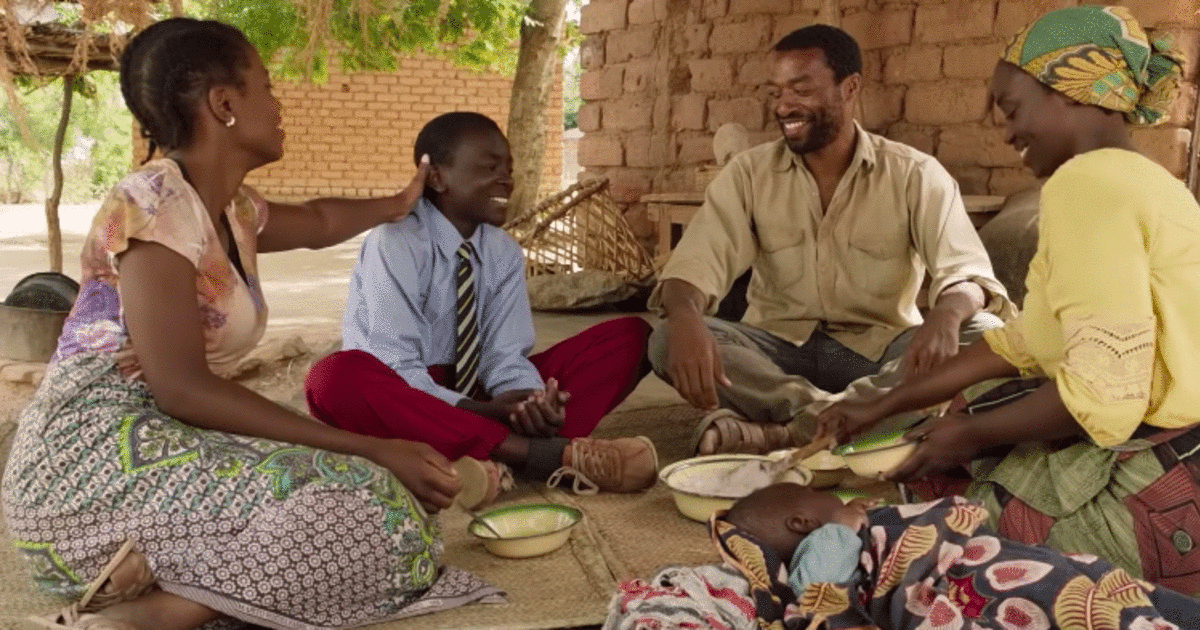
Written By Ben Murchison
Based on the memoir of the same name, The Boy Who Harnessed the Wind is available on Netflix and tells the true story of how a young boy in southeast Africa named William Kamkwamba (Maxwell Simba) builds a windmill to help save his village from drought and famine. While the ultimate culmination of the film and the incredible challenges that are overcome are straightforward, the story is beautifully portrayed.
The film is the directorial debut of Chiwetel Ejiofor who also plays William’s father Trywell, a farmer who along with his wife Agnes (Aïssa Maïga) want to give their children including William an education but struggle to afford the fees. When economic conditions force others in the village to sell their trees, it causes flooding, making harvests increasingly difficult before impossible as a severe drought begins, and William is removed from school as a result.
Fortunately for everyone, William has an aptitude for learning and creativity and takes measures to continue his studies, using science and engineering to create an irrigation system from mostly scrap materials in a junkyard. As a thirteen-year-old boy however, William must struggle to have his ideas taken seriously, especially by his father who is desperate to provide for his family and can’t see the logic in using the little resources available on a wild idea.
Ejiofor wastes no time establishing the setting for the events that unfold and reminding the audience that many things taken for granted in more developed areas are not easily obtained in Malawi. Scenes of men working the fields, a funeral ceremony, water being pumped for a shower and children walking through the village to school set the scene. The cinematography of Dick Pope showcases both the vast landscapes as well as the simple structures yet grand traditions found in the poor village.
While ultimately the story is focused on William and how he goes about building the windmill, themes and subplots of political corruption in a new democracy, family strain and the very real threat of starvation all increase the stakes for his success. It adds depth and context to the story, but it does also take time away from showing all the meticulous studying and steps that it had to take for William to arrive at and execute his vision. Instead, you see a few big ideas and breakthroughs as they happen and must infer that everything is coming together as the rest of the events are happening around him save a few cheerful montages.
It is still easy to become emotionally involved largely because of the tremendous performance Simba delivers in his very first acting role. He carries all the highs and lows of the story flawlessly with his facial expressions and delivery and it is especially impactful when he plays off the always impressive Ejiofor. A boy like William with such a bright mind trying to balance showing respect for his father while also wanting to accomplish something great and necessary despite him if need be is compelling, and even knowing the eventual outcome, the payoff is satisfying. Including a loyal dog also never hurts when you want to pull on the heartstrings of a viewer.
The film does a good job of showcasing conditions and customs in modern day Malawi, as well as highlighting what can be accomplished by a motivated individual if given the opportunity and access to resources. It serves as an uplifting and inspiring story even if audiences may be getting more immune to them, but it certainly is a strong and important directorial debut for Ejiofor.
Overall Rating: 7 out of 10

